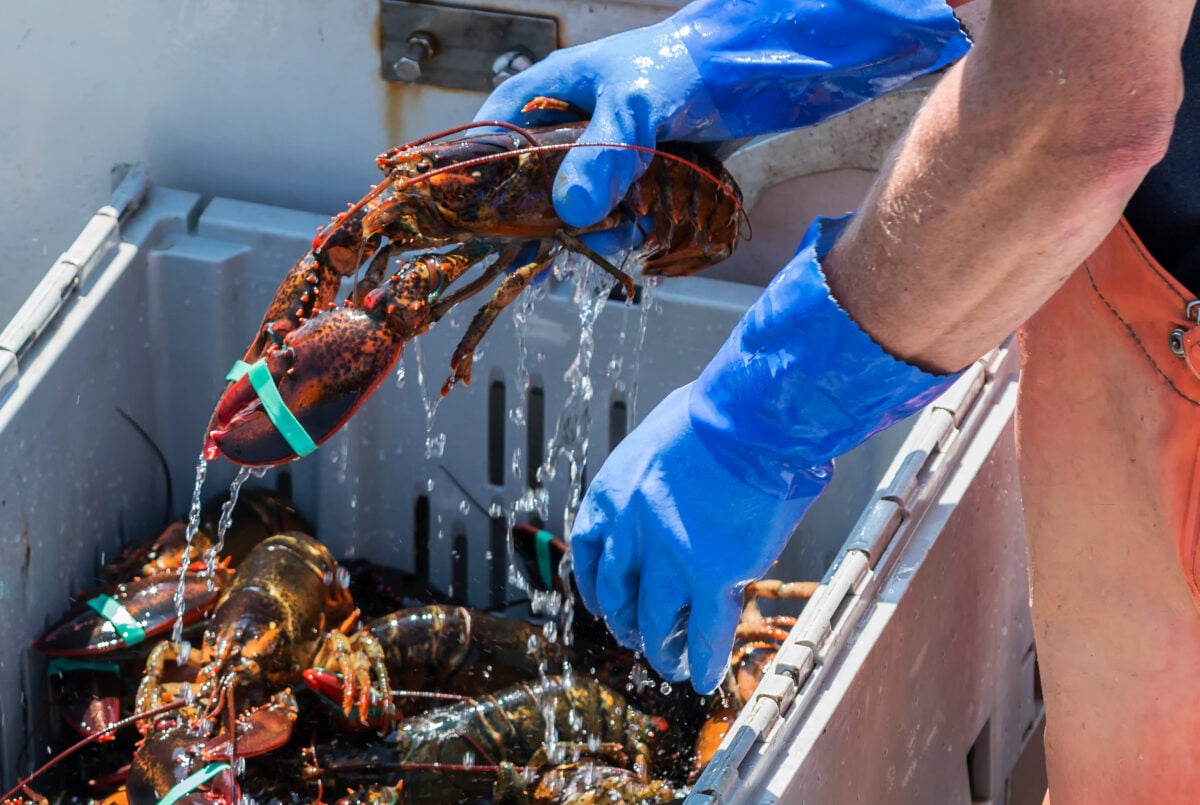A group specializing in animal law is considering legal action against the UK government as restaurants continue to boil lobsters alive.
Read more: Elephants Call Each Other By Unique Names, Study Finds
The Animal Law Foundation is a collective of lawyers who advocate for a “robust legal framework” to protect animals. In a statement sent to Plant Based News (PBN), the group explained that lobsters and crabs – both invertebrate decapod crustaceans commonly eaten by humans – are recognized as sentient under law since the introduction of the Animal Welfare (Sentience) Bill, first announced by the current government in 2021.
Furthermore, 2015’s The Welfare of Animals at the Time of Killing (WATOK) regulations make it an offense to cause an animal any avoidable pain, distress, or suffering, or to permit an animal to experience avoidable pain, distress, or suffering through inaction.
However, despite the above, boiling lobsters and crabs persists in professional settings like restaurants as well in private homes, where animal welfare legislation also applies. The Animal Law Foundation says that local authorities are responsible for enforcing welfare laws at the time of killing, something that the legal collective is attempting to highlight.
Read more: South Korea Party Pledges New Legal Status For Animals
‘Strong scientific evidence’ for crustacean sentience

The Animal Law Foundation also says it obtained footage of someone mishandling a lobster and boiling them alive, which the collective sent to Birmingham City Council to investigate. But to date, Birmingham City Council has refused to enforce welfare laws, citing “a lack of clarity from the central government” as to what the welfare law actually means for lobsters.
The government sent a statement to the Animal Law Foundation confirming that “anyone found killing decapod crustaceans in a way which breaches the requirements set out in WATOK” could be liable to prosecution. It hasn’t yet issued any specific guidance on how restaurants and individuals can comply with the law, however.
The Animal Law Foundation is calling on both the government and local authorities to do more for lobsters. “The power local authorities have to enhance the welfare of animals across the UK should not be understated,” Animal Law Foundation Programmes Coordinator Serena Conforti told PBN. “It has happened numerous times before, where local authorities either take enforcement action or ban practices in their areas, which then influences the national policy.”
The Animal Law Foundation threatened the UK government with legal action last year, also for failing to enforce the animal welfare standards introduced to protect lobsters and crabs.
The announcement of the Animal Welfare (Sentience) Bill followed the publication of a government-commissioned independent review in 2021. The review incorporated over 300 studies and found “strong scientific evidence” to support claims of sentience for decapod crustaceans, along with Cephalopod Molluscs like squid, octopus, and cuttlefish.
“These animals are experiencing extreme suffering that can last up to several minutes,” continued Conforti. She noted that the “vast majority” of the British public find live boiling lobsters and other crustaceans unacceptable, and urged local authorities to reflect the values of their communities.
‘Irresponsible’ to disregard welfare risks around sentient animals
In April of this year, nearly 40 researchers signed “The New York Declaration on Animal Consciousness,” which made several key points about animal sentience and welfare.
It noted that there is “strong scientific evidence” for attributing conscious experience to other mammals and birds, and that “empirical evidence” indicates a “realistic possibility” of conscious experience in all vertebrates and many invertebrates, including insects.
“When there is a realistic possibility of conscious experience in an animal, it is irresponsible to ignore that possibility in decisions affecting that animal. We should consider welfare risks and use the evidence to inform our responses to these risks,” said the declaration.
Read more: If Lobsters Are Sentient, Why Can We Still Boil Them Alive?






